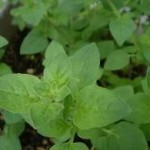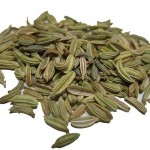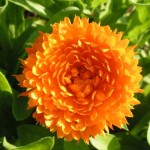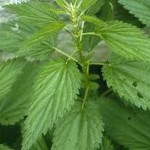 One of my latest interests that is rapidly turning into a passion is herbal medicines, I know from personal experience that they can be used for a lot of different things with good results, and because I can grow the ingredients myself and process them I know there is nothing in them that is bad for my family.
One of my latest interests that is rapidly turning into a passion is herbal medicines, I know from personal experience that they can be used for a lot of different things with good results, and because I can grow the ingredients myself and process them I know there is nothing in them that is bad for my family.
The other problem with herbal remedies in the health food stores is that they are often quite expensive and frequently are old so have lost their potency. One of the best things about growing my own herbals is that they are fresh, plentiful and inexpensive.
There are many herbals out there that seem exotic, hard to find or that just will not grow in your area, there are others that you might need to go foraging for which for some may not be an option if they live in the city, and there are just as many that are not up for foraging. While I think everyone should learn a bit of foraging magic, it can also be said that there are a number of different herbal remedies that are most likely in many backyards already and you may just not be aware of it or can be easily obtained and grown. There are also several herbals that are easy to get and even easier to grow.
5 Medicinal Herbals You Likely Already Have
If you are a gardener, and most people that would read an article like this are, then you may have some of these herbal remedies already growing, others may be present as weeds in your yard and easy to identify.
 Oregano is a common garden herb that is frequently in backyard gardens. Most well known as an Italian spice used in a variety of dishes, oregano has a broad spectrum of medicinal properties. Oregano is known to have properties that make it useful as an antiseptic and an antifungal. Used in a tea or tincture is also known to help with colds and upper respiratory infections.
Oregano is a common garden herb that is frequently in backyard gardens. Most well known as an Italian spice used in a variety of dishes, oregano has a broad spectrum of medicinal properties. Oregano is known to have properties that make it useful as an antiseptic and an antifungal. Used in a tea or tincture is also known to help with colds and upper respiratory infections.
 Fennel is another Herb that you might have in your garden but if you do not then it is likely that you will have it in your spice cabinet. Fennel seeds are good for colic, and work well as an antispasmodic and laxative. Many breastfeeding mothers will drink a tea with fennel in it to improve lactation and the digestibility of the mother’s milk.
Fennel is another Herb that you might have in your garden but if you do not then it is likely that you will have it in your spice cabinet. Fennel seeds are good for colic, and work well as an antispasmodic and laxative. Many breastfeeding mothers will drink a tea with fennel in it to improve lactation and the digestibility of the mother’s milk.
 Calendula also known to some as a potted marigold is a common flower found in many flower beds and has many different medicinal properties. It is commonly used as a tea, in combination with other herbs to treat throat problems, or can be used as a mouth rinse for cold sores and sore throats. Calendula is also popular to be used in a lotion or ointment. Healing properties for Calendula include use as an antiseptic, anti-inflammatory and can be used on wounds, old burns, sun burns and insect stings.
Calendula also known to some as a potted marigold is a common flower found in many flower beds and has many different medicinal properties. It is commonly used as a tea, in combination with other herbs to treat throat problems, or can be used as a mouth rinse for cold sores and sore throats. Calendula is also popular to be used in a lotion or ointment. Healing properties for Calendula include use as an antiseptic, anti-inflammatory and can be used on wounds, old burns, sun burns and insect stings.
 Dandelion is a plant we all know and a few us work hard to rid our yard of, but this flower, as invasive as it might be is not only something that you can add to your salad or your meal but is also great for your digestion. Commonly made into tinctures and teas this weed/ medicinal works as a mild laxative and is considered to be a good diuretic as well as being good for the liver and promoting the secretion of bile, so before you go killing all of your dandelions think about harvesting a few for fresh use now and drying them for tea later.
Dandelion is a plant we all know and a few us work hard to rid our yard of, but this flower, as invasive as it might be is not only something that you can add to your salad or your meal but is also great for your digestion. Commonly made into tinctures and teas this weed/ medicinal works as a mild laxative and is considered to be a good diuretic as well as being good for the liver and promoting the secretion of bile, so before you go killing all of your dandelions think about harvesting a few for fresh use now and drying them for tea later.
 Stinging Nettle is the last plant on our list, and is one you are not likely to see unless you are out for a walk or taking a hike. It is prolific in the woods, on the sides of the road and you might even see a few popping up in your grass. I am putting it on the list, because it is so common, most often considered a nuisance but like the dandelion it has some good healing properties that should not be ignored. Stinging nettle is high in nutrients and is used as an anti-inflammatory as well as an immune booster to help fight allergies. Stinging Nettles is also good as a hair tonic that can improve the texture and tone of your hair.
Stinging Nettle is the last plant on our list, and is one you are not likely to see unless you are out for a walk or taking a hike. It is prolific in the woods, on the sides of the road and you might even see a few popping up in your grass. I am putting it on the list, because it is so common, most often considered a nuisance but like the dandelion it has some good healing properties that should not be ignored. Stinging nettle is high in nutrients and is used as an anti-inflammatory as well as an immune booster to help fight allergies. Stinging Nettles is also good as a hair tonic that can improve the texture and tone of your hair.
Dont Stop With These There are Many Other Herbs for Medicine Out There
There are many other herbs and plants that are grown in the typical garden that have healing properties, things such as Rhubarb, onion, garlic, sage, thyme and basil all have medicinal properties that can be used to treat minor ailments such as stomach and digestion problems, wounds, rashes, insect stings burns and much more.
NOTE: My sources for this article come from the book Making Plant Medicine by Richo Cech, keep in mind that this is not medical advice and all of the suggestions I have made here should be thoroughly researched and read about before you attempt to use them. It is also important to note that herbal remedies are medicines and should be used cautiously, find a reliable book or source to learn how to prepare your herbals properly, and the proper dosages to use them at.
My goal with this article is not to suggest remedies but rather to point out that there are many of the plants around you that have uses in natural medicine that you may be able to easily take advantage of.

Leave a Reply